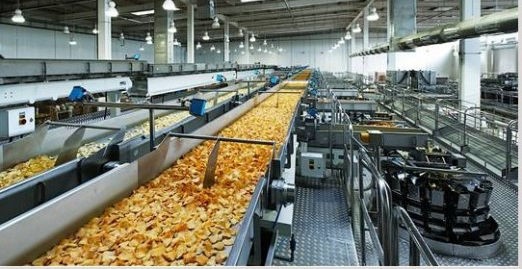The food processing industry is a vital part of the global economy, transforming raw agricultural products into food that is safe, nutritious, and convenient to consume. The industry encompasses a wide range of activities, from cleaning and sorting raw materials to packaging and distributing finished products. Food processing companies play a critical role in ensuring that people have access to a safe and affordable food supply.
The food processing industry has undergone significant changes in recent years, driven by factors such as globalization, urbanization, and changing consumer preferences. The industry is becoming increasingly consolidated, with a small number of large companies accounting for a significant share of global production. At the same time, there is a growing trend towards smaller, artisanal food processors that produce high-quality, specialty products.
Despite the challenges it faces, the food processing industry is expected to continue to grow in the coming years. This is due to a number of factors, including the rising global population, increasing incomes in developing countries, and changing lifestyles. The industry is also expected to benefit from technological advances that lead to more efficient and sustainable production methods.
Here are some of the key trends that are shaping the future of the food processing industry:
- Rising demand for processed foods: As people become busier and more urbanized, they are increasingly demanding processed foods that are convenient and easy to prepare. This is driving growth in the market for packaged foods, ready-to-eat meals, and snacks.
- Growing awareness of health and wellness: Consumers are becoming more aware of the importance of eating a healthy diet. This is leading to a shift in demand towards more nutritious and functional processed foods.
- Sustainability: Food processors are under increasing pressure to reduce their environmental impact and operate in a more sustainable way. This is leading to the adoption of new technologies and practices, such as renewable energy, waste reduction, and water conservation.
- Technology: Technological advancements are playing a major role in transforming the food processing industry. New technologies are being used to improve food safety, quality, and efficiency. For example, artificial intelligence and robotics are being used to automate tasks such as grading and sorting raw materials and packaging finished products.
The food processing industry is a dynamic and growing sector that is essential to the global food supply. The industry is facing a number of challenges, but it is also well-positioned to capitalize on emerging opportunities. By embracing technological innovation and sustainability practices, food processors can continue to meet the needs of consumers and contribute to the global economy.
Here are some examples of how the food processing industry is responding to the trends mentioned above:
- Food companies are developing new products and reformulating existing products to meet the growing demand for healthy and nutritious foods. For example, many companies are reducing the sugar, salt, and fat content of their products. They are also adding more fruits, vegetables, and whole grains to their products.
- Food processors are investing in new technologies to improve food safety and quality. For example, many companies are using blockchain technology to track the movement of food products through the supply chain. This helps to ensure that food products are safe and of high quality.
- Food companies are working to reduce their environmental impact and operate in a more sustainable way. For example, many companies are investing in renewable energy sources and reducing their waste production. They are also working to source their ingredients from sustainable suppliers.

